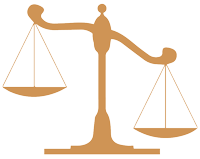
When someone dies, their assets must be distributed, usually by dividing them among their heirs or beneficiaries. Probate is the legal process that occurs when someone dies. In the absence of a will, state law determines how assets are dispersed. If the decedent had a last will and testament, it would specify who would receive the assets. Recipients could be family members, heirs, beneficiaries, charities, and so on. These directions should ideally be explicit in order for the procedure to run successfully. However, there are times when disagreements occur that result in litigation. Litigation is a major undertaking that is governed by a set of regulations, timeframes, and other factors. An attorney who specializes in probate litigation assists individuals, heirs, beneficiaries, executors, and trustees in navigating the legal system to achieve the best possible outcome. If you have questions about what a loved one is doing or has done with their estate, or if you are an executor or trustee, questions about how you are administering a will, estate, trust, or trust estate, you should see a probate litigation attorney. Typically, a probate litigation attorney is retained to handle common will, trust, and estate problems. Below we will list some of the most common reasons to hire a litigation attorney in Houston, Texas at The Welsh Law Firm.
When to Hire a Probate Litigation Attorney
Contesting a Will, A will, trust, or estate plan is frequently amended under dubious circumstances – for example, in the hospital after a stroke or to make an unnatural person a beneficiary, for example, or a caregiver. There are occasions when a will, trust, or estate plan contains errors or omissions that need to be corrected. A will or trust will need to be legally contested or argued in court in any of these circumstances, or court direction will be required to rectify the mistake or omission. Undue Influence, Undue Influence is a circumstance in which a person in a position of power exploits another person. It’s one of the most prevalent causes for a will contest. An undue influence claim frequently coexists with a claim that the decedent lacked mental capacity and was thus vulnerable to undue influence as a result of that disability. If an heir or beneficiary believes that someone acted against the decedent’s wishes for their benefit, the heir or beneficiary may challenge the document’s or distribution’s validity and seek to have the estate’s assets distributed according to what the court determines to be the decedent’s true wishes. Mental Incapacity, If an heir or beneficiary believes the decedent lacked the mental capacity to make reasonable decisions about how their assets should be split, a probate litigation attorney may dispute the legality of the will as undue influence. Breach of Fiduciary duty, an executor is a fiduciary, usually a family member, who is appointed to carry out the terms of a will. A trustee is a fiduciary who is charged with carrying out the terms of a trust. If a fiduciary fails to follow the decedent’s instructions or their legal obligations, probate litigation can be used to seek the suspension or removal of the fiduciary, the appointment of a responsible fiduciary, and the recovery of damages from the fiduciary for their fiduciary breach.
Sibling rivalry, second marriages, and dysfunctional families are all high-risk factors for probate litigation. Multiple marriages without a prenuptial agreement are likely to result in probate litigation. A prenuptial agreement is the most common approach to avoid probate litigation after the death of a spouse. Many people mistakenly feel they own their assets as distinct property when they have become a community or marital property. Instead, then leaving family members to battle over these things after death, the spouses should write a nuptial agreement specifying proper ownership of their assets before or after marriage. Life insurance trusts are frequently the most effective approach to separate the interests of the deceased spouse’s children from the interests of the surviving spouse while yet providing for both. Even if an estate is validly challenged, most states have a strict statute of limitations. A claim that exceeds the legal limit will not be heard in probate court. As a result, individuals who want to contest an estate should seek legal counsel as soon as possible. Because of the nature of probate court, emotions are high, and interactions are tense, which means that probate litigation can significantly disrupt familial relationships. While not all estate-related disputes can be avoided, proper planning can significantly reduce probate litigation. Hiring a litigation attorney in Houston, Texas can possibly lessen any tensions that could possibly arise.
Probate litigation Attorney Houston, TX
If you are looking for a probate litigation attorney in Houston Texas, The Welsh Law Firm has years of experience in these cases. Contact us today for more information.
